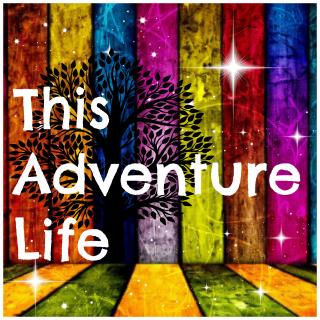Identifying and Expressing Feelings – NVC Week 4
If you’re following along or just joining us, we’re working through Marshall Rosenberg’s book, Nonviolent Communication, and Lucy Leu’s companion Workbook . We’re doing this as part of our homeschool curriculum and we welcome your thoughts and companionship on our journey.
It surprises me sometimes how the things that pop on Facebook are relevant to what’s going on in my life. I mean, not really, because it used to happen all the time when I was religious-y, and I would attribute it to a ‘blessing’ or divine direction or whatever. These days, I’m more inclined to believe that this happens because our brains are hard-wired to find patterns in our lives, and when we have something on our minds unconsciously (and especially when it’s consciously part of our thinking), we’re more apt to notice these little ‘coincidences’, but that doesn’t lessen my amazement and delighted surprise when they occur.
In any case, this week’s NVC chapter is on identifying and expressing emotions, and on my wall this morning was an article posted by Spin-Doctor Parenting, You Don’t Really Feel That Way, Part I. It was talking about how we parents often, without realizing it, teach our children to distrust their feelings or relegate them to the backseat. And then we wonder why we have such a hard time communicating how we feel about something…
I think I’ve mentioned it before, but I like communication help sites that offer a script. I generally get the concept, but lack the vocabulary, or recall to make up my own words in tense situations. Having a script helps get the words I want to use at the ready – at least until I’ve internalized it enough to have the language I want to use at the ready. Books like ‘How to Talk so Kids Will Listen and How to Listen so Kids Will Talk‘ by Faber & Mazlish is great – there’s even a school version. With tools like these on hand, it’s easy to keep your cool all the time and remember to ‘use your words’, right? RIGHT?!?
No, of course not. But it does help. Immensely, especially when your own connection to your feelings is masked by years of being told that the only appropriate outward display of emotion is calm – or at least a reasonable facsimile of calm (which has the unintended side effect of molding a really good actor).
It’s not just being in touch with negative emotions that is important. Masking or limiting emotional intelligence also has a negative effect on being able to process positive emotions as well. I find it both interesting and odd that I am less embarrassed by allowing negative emotions to show, and more embarrassed by allowing positive emotions to show. Last night I had dinner and discussion with some very good friends and some new people in my life. I was in a very, very good mood and a little dizzy with it. I chattered quite a bit and may have laughed too loud once or twice. I am unused to letting my emotions have any kind of starring role in my actions, and so anytime I get carried away, I end up extremely embarrassed by something I said or did. Keep in mind that intellectually, I know that I didn’t say or do anything untoward or inappropriate in any way. I was just happy and excited and a little nervous. But I lack the emotional management tools to properly assess those feelings and assign them to their proper place. I felt ‘out of control’ and that’s unpleasant for me. Nonetheless, this is progress for me – even being able to identify and express what’s ‘really’ going on in my own head.
A sampling of Chapter 4’s review/discussion questions:
According to Rosenberg, why do people in certain professions have more trouble than the rest of us in identifying and expressing feelings?
What problems might a woman encounter in ‘expressing her feelings’ by saying to her husband, “I feel like I’m living with a wall’?
What are the advantages of expressing our feelings?
What is the advantage over identifying specific emotions rather than general ones (I feel good/bad.)
And a few of the workbook’s exercises:
How do you know what you are feeling at any given moment? Where do you go to look?
Under the subheading ‘Feelings vs. Non-Feelings”, there are examples of words that tend to describe:
- what we think we are (I feel inadequate)
- how we think others are evaluating us (I feel unimportant)
- how we think others are behaving towards or around us (I feel misunderstood/I feel ignored)
What other words would fall into this category?How do you feel in the presence of someone who does not express their feelings?Start your own personal inventory of feelings (exercise).
Now that we’ve been working on this for a month, I am really starting to see small changes in all of us that I think will accumulate as we continue. It’s definitely easier for my kids to grasp some of these concepts than it is for me; we read over and discuss the review questions at the end of each chapter the day we read over the chapter, and then again at the end of the week and try to think of specific instances where we each put the chapter’s topic into practice – in this case, where we expressed an evaluation with ‘I feel’ rather than a true emotion, and where we have used words to describe actual emotions. They’re usually in agreement with the author more often than I am, and/or are faster to respond – I still have to think about it much of the time. The changes are getting easier, more visible in daily interactions – small and just hints of them much of the time but they’re there.
Warmly,
~h
(Disclaimer: This is not a certified or ‘official’ NVC anything. This is my personal journey through Marshall Rosenberg’s book, Nonviolent Communication, and Lucy Leu’s NVC Companion Workbook. I am NOT an expert, nor am I particularly skilled in this process. Please use/follow/apply with those things in mind. When in doubt, please disregard my commentary and refer to the book or workbook. I make no money off of this exercise, nor is any copyright infringement meant by posting a sampling of the questions from the workbook. For best results, I strongly recommend that you purchase the book and workbook for yourself and go through them in their entirety at your leisure.)
This entry was posted on September 9, 2011 by HT. It was filed under Attachment Parenting, High Needs Child, Homeschooling Resources, NVC, Personal Growth and was tagged with attachment parenting, homeschool, methods, NVC, NVC with kids, raising responsible adults.












Love it? Hate it? Let me know! Leave a comment: